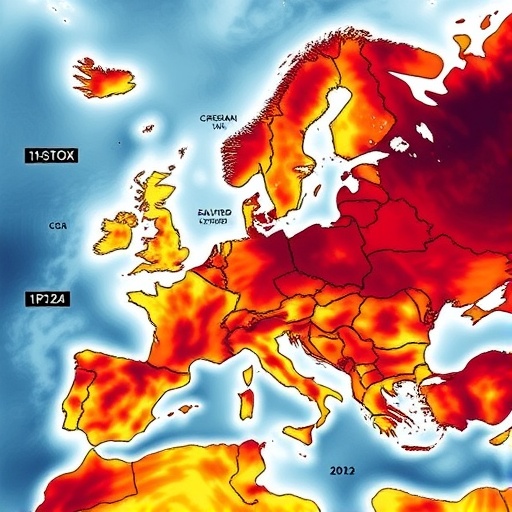Recent research published in Communications Earth & Environment has shed light on the alarming trend of marine heatwaves across Europe. The study, conducted by researchers Atkins, Scaife, Graham, and others, identifies these heatwaves as unprecedented occurrences that, while surprising in intensity, are not unexpected given the backdrop of climate change. Marine heatwaves, which refer to prolonged periods of excessively warm sea surface temperatures, have been tracked across European waters, raising concerns for marine biodiversity, ecosystems, and fisheries.
The research highlights that the increase in the frequency, duration, and intensity of these heatwaves correlates with rising global temperatures. As greenhouse gas emissions continue to climb, the oceans — which absorb a significant portion of the excess heat — experience elevated temperatures. This thermal imbalance not only impacts marine organisms at the base of the food web but also affects higher trophic levels, leading to significant alterations in biodiversity and ecosystem functionality.
By analyzing historical data, the authors reveal that the recent marine heatwaves are part of a larger pattern, reflecting the consequences of a warming planet. They point out that similar events were recorded in other parts of the globe, suggesting that the issue is systemic and not limited to European waters. The implications are profound, as marine heatwaves can lead to species migrations, changes in reproductive cycles, and even mass mortality events among sensitive species.
The study employs advanced climate modeling techniques to forecast future occurrences of marine heatwaves. The results indicate a worrying trend: as climate change continues unabated, regions that were historically less impacted by such phenomena could see unprecedented heatwaves in the near future. By drawing connections between current observations and climate models, the authors underscore the urgency for understanding and anticipating these environmental shifts.
In examining specific case studies within European waters, it becomes clear that marine heatwaves have already disrupted local fisheries and economies. Warmer waters have caused commercially important fish species to migrate to cooler, deeper areas, which has serious implications for fishermen and coastal communities dependent on these resources. The interconnectivity of these ecosystems means that the effects of marine heatwaves ripple through the food chain, impacting everything from phytoplankton to large predatory fish.
Understanding the biological impact of marine heatwaves is critical, as many marine species are not only sensitive to temperature changes but also face other stressors such as pollution and habitat degradation. The compounded effects of these stressors can lead to significant shifts in community structure and function. For instance, coral reefs, already under threat from rising temperatures, are likely to be severely impacted by marine heatwaves, impacting biodiversity and the millions of livelihoods that depend on reef ecosystems.
The findings of this study also prompt a re-evaluation of current marine management and conservation strategies. Policymakers must adapt to recognize the increasing frequency of marine heatwaves and incorporate these changes into sustainable management practices. Effective conservation efforts may require the establishment of marine protected areas that are resilient to the changing climate, as well as better regulatory measures to mitigate greenhouse gas emissions.
Ultimately, this research serves as a clarion call for action. The scientific community is urged to develop predictive models that account for the interplay between climate change and marine ecosystems. This initiative could facilitate timely interventions aimed at preserving marine biodiversity and ensuring the resilience of oceanic ecosystems in the face of climate change.
As the evidence mounts regarding the frequency of marine heatwaves, the need for immediate and substantial action becomes increasingly clear. The researchers emphasize that while these events may be unprecedented, they are not unexpected. Addressing the root causes of climate change is key to mitigating the impacts of these marine heatwaves, ensuring the health and sustainability of ocean ecosystems for future generations.
In summary, the rising incidence of marine heatwaves in Europe, as documented in this groundbreaking study, underscores the profound changes occurring in our oceans due to climate change. The research illuminates the urgent need for proactive measures at both national and international levels to address these challenges. As society stands on the brink of potentially irreversible environmental change, the call to action is resounding: we must heed the warning signs and commit to preserving the health of our oceans and the myriad of life they support.
Subject of Research: Marine heatwaves in Europe
Article Title: Recent European marine heatwaves are unprecedented but not unexpected.
Article References:
Atkins, J.R.C., Scaife, A.A., Graham, J.A. et al. Recent European marine heatwaves are unprecedented but not unexpected.
Commun Earth Environ 6, 792 (2025). https://doi.org/10.1038/s43247-025-02802-3
Image Credits: AI Generated
DOI: 10.1038/s43247-025-02802-3
Keywords: Marine heatwaves, climate change, biodiversity, ecosystems, fisheries, ocean management.




